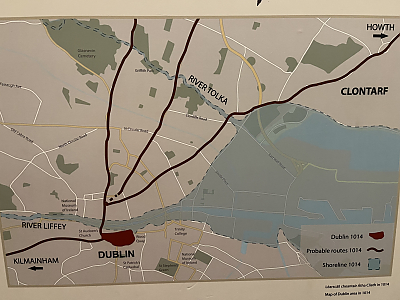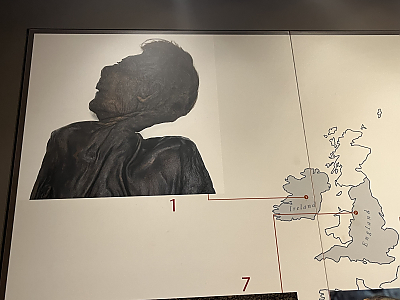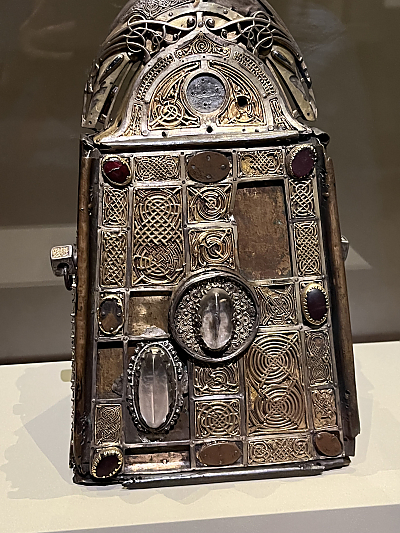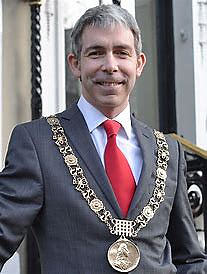The Archeology Museum and a Visit from Andrew Montague—Ellie, Felix and Ryan
Elinor Attridge June 22nd Revisiting the Archeology Museum
After Visiting the Archeology Museum two times, I wondered what there is to know about the Irish Kingdoms of the past and anything regarding the Vikings' influences later on. We entered the museum not entirely knowing what is consistent in the main collection, but I was fascinated that there was a fair number of artifacts from the Bronze Age that survived after being rediscovered in peat moss bogs all over Ireland and the British Isle. Mini-kingdoms seemed to last in Ireland throughout the Bronze Age, the arrival of Catholicism, the Vikings raiding then settling, but ended mostly due to colonization in the 1500s.

I was with a friend as we took as many notes as possible with our camera, only to take pictures of the texts about the items & historical knowledge but not the items themselves. This was the case for both visits. I forgot to mention gold was not the only thing discovered in peat moss bogs. The attire from the 1700s was well preserved, more impressively the remains of well-preserved human beings from the Bronze Age have also been recovered. One of them is from Ireland and his body was dug up in 2003. Sadly, the lower half of the man's body was destroyed by mistake by a machine that was digging up the bog, but his upper half is enough to tell us more about him. He was young, between the ages of 25 and 30. He has oils in his hair from Spain and France, which was an expensive endeavor to obtain such hair products during the time he died. Plus, he died fit and healthy and rich in Ireland.

Apart from the peat moss bogs, there are also old records of Dublin before it was landfilled along its coast. What people's houses were mostly made of. Along with the countless Christian idols and decorated artifacts on display.

In the gift shop, there was an array of keychains displaying each clan crest of Ireland including the O'Malley Clan which bears a red boar. It is well known for Grace O’Malley and for being a sea-faring clan having control off the coast of Galway.
Felix Mann on Andrew Montague's presentation 6/24/24
According to the notes taken at the time of his visit during class this week, Former Lord Mayor of Dublin Andrew Montague served as the Lord Mayor in Dublin, Ireland for a year and resided in the Mansion House from the year 2011 to 2012.
From Andrew, we learned that Ireland has been the only English-speaking country in the European Union since Brexit and has the fastest-growing population of any other country in the continent of Europe with a 3.4% increase per year. Ireland has a very well-educated population ranking number two in the world for reading, and two-thirds of the adult population have received college degrees. On top of that, they are attractive to international tech and pharmaceutical industries.
Brexit has not been good for Northern Ireland, resulting in a far less robust economy compared to the Republic. Doctors in Northern Ireland earn much lower pay than in the Republic. Many of them are moving and getting jobs elsewhere.
Andrew’s career choices included being a veterinarian, politician, public bike schemer, and one of the originators of the “worst offenders” program. Out of all these occupations, politics was his top choice.
At the end of his presentation, we asked Andrew questions about various issues including addiction and homelessness in Dublin, the causes of the housing crisis, education, and the relationship between England and Ireland. Andrew talked about Ireland’s longstanding conflict with the English quoting Irishman Jonathan Swift who said, “Burn everything English except their coal”.










